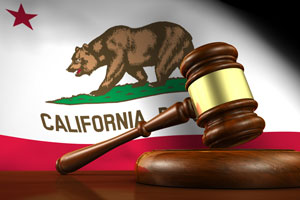A recent California court decision has limited a rule that an expert witness cannot give a declaration that is contrary to prior discovery responses.
The Underlying Dispute
From August 1973 to May 1974, Michael Harris worked on the U.S.S. San Jose as a hull maintenance technician for the United States Navy. Thomas Dee Engineering Company performed repairs on the boiler aboard the U.S.S. San Jose during the fall of 1973.
Michael Harris was diagnosed with mesothelioma in March 2014. Two months later, he and his wife Beth filed a complaint against Thomas Dee Engineering Company and other defendants for negligence, strict liability, and loss of consortium. The complaint alleged that Thomas Dee’s work on the U.S.S. San Jose had exposed Harris to asbestos.
Michael passed away in October 2014. In July 2015, Beth and her children amended the complaint to include wrongful death and survival claims.
Motion to Dismiss
In June 2017, Thomas Dee filed a motion for summary judgment on the issue of asbestos exposure. The company argued that Harris had testified that he had not seen anyone working on the boilers and Harris’ expert had testified that Harris would not have been exposed to asbestos if he was not present when the work was being done.
To oppose the motion, the Harrises offered their expert’s “re-entrainment theory,” an opinion which was not previously disclosed and contradicted by his deposition testimony. Under the re-entrainment theory, Harris would not have needed to be present during Thomas Dee’s work to be exposed to asbestos. The trial court granted Thomas Dee’s motion for summary judgment. The Harrises appealed.
Court of Appeal of the State of California, First Appellate District
On appeal, the Harrises argued that the trial court erred by refusing to give weight to their expert’s declaration and that the declaration raised a triable issue as to whether Thomas Dee’s activities exposed Harris to asbestos.
The court of appeals noted that the trial court should not have disregarded the Harrises expert’s declaration simply because it wasn’t mentioned in his deposition. Prior cases had prevented experts from testifying at trial about opinions that exceeded the scope of deposition testimony. The court distinguished the current case — here, the introduction of the re-entrainment theory came in a motion in opposition to summary judgment, not at trial. If the theory was new, there was nothing that prevented Thomas Dee from re-deposing the expert prior to trial.
The court also noted that the fact that the expert’s declaration and his deposition testimony contradicted each other did not necessarily eliminate the declaration’s evidentiary value. Here, the expert’s declaration related to a scientific theory he had not mentioned in his deposition and his statement did not directly contradict any prior testimony regarding facts that he had observed.
The court noted that it was a decision for the ultimate factfinder to decide what weight to give to the expert’s testimony in light of his previous deposition testimony. Therefore, the trial court erred by refusing to give the expert’s declaration any weight and granting summary judgment. The court of appeals reversed the order granting summary judgment in favor of Thomas Dee.




